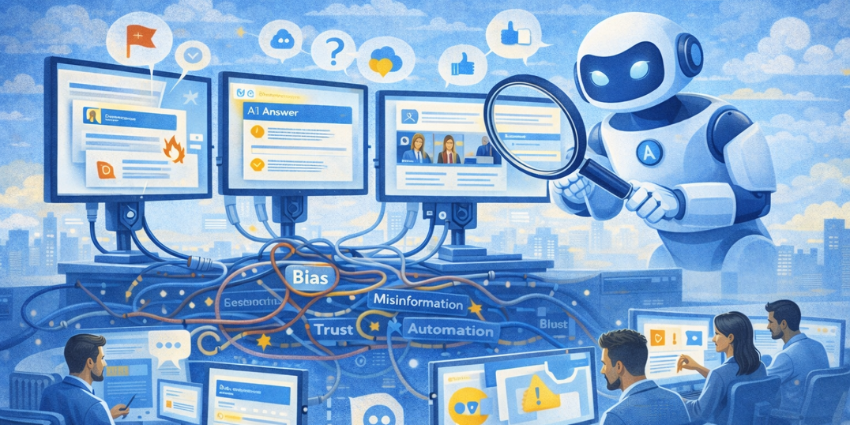At the heart of delivering customer experiences is the contact center – where agents interact directly with customers, often serving as the face and voice of the brand. And for contact centers to excel, teamwork is essential.
This article explores the power of teamwork in crafting a memorable CX. You’ll learn what teamwork entails, why it’s crucial for contact center agents and practical tips for agents to excel in teamwork.
Defining Teamwork
Teamwork, at its core, involves collaboration and cooperation among individuals to achieve a common goal. In a contact center, this means working together seamlessly to resolve customer issues, share knowledge, and support one another in delivering consistent and high-quality service.
Teamwork isn’t just about working in proximity or sharing tasks. It involves leveraging the diverse skills and perspectives of each team member to improve overall performance and create a cohesive unit that can tackle challenges more effectively than any individual could alone.
Why Teamwork is a Key Contact Center Agent Skill
Contact centers are dynamic environments where agents must handle a variety of customer queries, often under pressure. The ability to work as part of a team is a key skill for several reasons:
1. Solve problems faster
Complex customer issues often require input from multiple agents with different areas of expertise. Teamwork facilitates this collaboration, enabling more comprehensive and effective solutions.
2. Remain consistent
When agents work well together, they ensure that customers receive consistent information and support, regardless of who handles their query. This consistency builds trust and enhances the overall customer experience.
3. Boost your work efficiency
Teams can manage workloads more effectively, reducing wait times for customers and improving service levels. Agents can assist each other during peak times, ensuring that no single agent is overwhelmed.
4. Develop collective intelligence
Team environments encourage the sharing of best practices and insights, leading to continuous improvement in service quality. Experienced agents can mentor newer colleagues, raising the overall skill level of the team.
5. Support and motivate each other
The emotional support provided by a strong team can help agents manage the stress associated with high-pressure environments, leading to better morale and reduced turnover rates.
What Makes a Great Team Player? Telling Personality Traits
Not all agents naturally excel in a team environment. Certain personality traits and behaviors are indicative of strong team players – you need to hire for these traits (or train for them) in order to achieve real teamwork in a contact center:
- Communication skills: Effective team players communicate clearly and listen actively. They can articulate their ideas and concerns while being receptive to feedback from others.
- Empathy and emotional intelligence: Understanding and empathizing with colleagues’ perspectives helps in building strong, collaborative relationships. Emotional intelligence enables agents to navigate interpersonal dynamics skillfully.
- Reliability and accountability: Great team players are dependable and take responsibility for their actions. They follow through on commitments and can be trusted to perform their duties diligently.
- Flexibility and adaptability: The ability to adapt to changing circumstances and support team members in various roles is crucial. Flexibility ensures that the team can pivot and adjust strategies as needed.
- A positive attitude: Maintaining a positive outlook, even in challenging situations, can be contagious and uplifting for the entire team. Positivity fosters a supportive and productive team environment.
- Collaboration over competition: Prioritizing the success of the team over individual achievements is a hallmark of a great team player. They understand that collective success leads to better outcomes for everyone.
Impediments to Teamwork in Contact Centers
Despite the clear benefits, several impediments can hinder effective teamwork in contact centers. Typically, you’ll need to overcome:
- Lack of trust: Without trust, team members may be reluctant to share information or collaborate, fearing negative repercussions or unfair distribution of work.
- Inadequate training: Insufficient training on teamwork and collaborative tools can leave agents ill-prepared to work together effectively.
- High turnover: Frequent staff changes can disrupt team cohesion and continuity, making it difficult to build strong working relationships.
- Competitive culture: An overly competitive environment can discourage collaboration, as agents may focus more on outperforming colleagues than on working together.
- Unclear roles and responsibilities: Ambiguity in roles can lead to confusion and conflict, as agents may either duplicate efforts or neglect important tasks.
How to Excel at Teamwork: Tips for Agents
For contact center agents looking to enhance their teamwork skills, here are some practical tips:
Use active listening techniques to ensure you understand your colleagues’ points of view. Regularly share updates and be open to feedback.
- Take advantage of training opportunities that focus on teamwork and collaborative tools. Stay updated on best practices and industry trends.
- Be willing to adapt to changing circumstances and take on different roles as needed. Support your team by being versatile and open to new approaches.
- Align your personal goals with those of the team. Understand that the success of the team ultimately benefits everyone, including yourself.
- Utilize collaborative tools and platforms to streamline communication and project management. Familiarize yourself with software that enhances teamwork efficiency.
- Engage in activities that strengthen team bonds and improve interpersonal relationships. These activities can range from informal gatherings to structured workshops.
In Conclusion: Why Teamwork is Central to Great CX
Ultimately, the power of teamwork lies in its ability to amplify individual strengths, mitigate weaknesses, and create a supportive environment where every team member can thrive. For contact centers aiming to deliver exceptional CX, investing in teamwork is not just beneficial — it’s essential.
It ensures that contact centers can adapt to new challenges, maintain high service standards, and foster a culture of continuous improvement. By prioritizing teamwork, contact centers not only enhance their operational efficiency but also build a reputation for outstanding customer service.
Did you find this article useful? Follow us on social media for more such insights.







